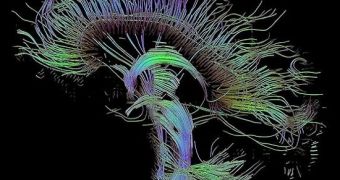Whether we realize it or not, our daily lives are made possible, and so much easier, by the precise control that we have over our mundane activities, such as eating, driving a car, or playing an instrument. All of these actions require precise timing and coordination, yet the mechanisms underlying this ability are very little understood. Time, experts say, must be very well represented in the brain, but precisely how this is possible has remained a mystery until now. Neuroscientists at the Massachusetts Institute of Technology (MIT) have now taken a step towards resolving this mystery.
The investigation team, PhysOrg reports, was led by McGovern Institute for Brain Research and Department of Brain and Cognitive Sciences member, Professor Ann Graybiel. She and her crew managed to train two macaque monkeys to perform simple and basic eye-movement tasks. Each of the monkeys was allowed to perform the tasks at its own speed, immediately after it heard the “go” signal. The firing patterns inside the brain were then recorded, and expert observed the time intervals at which the neurons fired after they heard the “go” command.
Neurons in the prefrontal cortex and the striatum, two brain areas believed to be involved in learning, movement and thought control, fired together at highly precise intervals – of 100 milliseconds, 110 milliseconds, 150 milliseconds, etc. – after the command was issued. These nerve cells provided the monkeys with a very fine-tuned “stopwatch” that made possible the coverage for several seconds. Any time-point within these seconds could therefore be remember with high accuracy, and it could also be established down to error ranges of less than 50 milliseconds.
The thing about the new research is that it spawned more questions than it answered. For one, the scientists don't know yet how the brain produces the time code that it uses to keep track of most of its behaviors. Additionally, there is still no clue as to how these processes affect things like control and learning, which reside in the same brain regions. The team says that continuing this line of research could result in better neural prosthetics in the future, which could significantly improve the quality of life for people suffering from conditions such as Alzheimer's.
The find is detailed online in the October 19 issue of the respected journal Proceedings of the National Academy of Sciences (PNAS).

 14 DAY TRIAL //
14 DAY TRIAL //